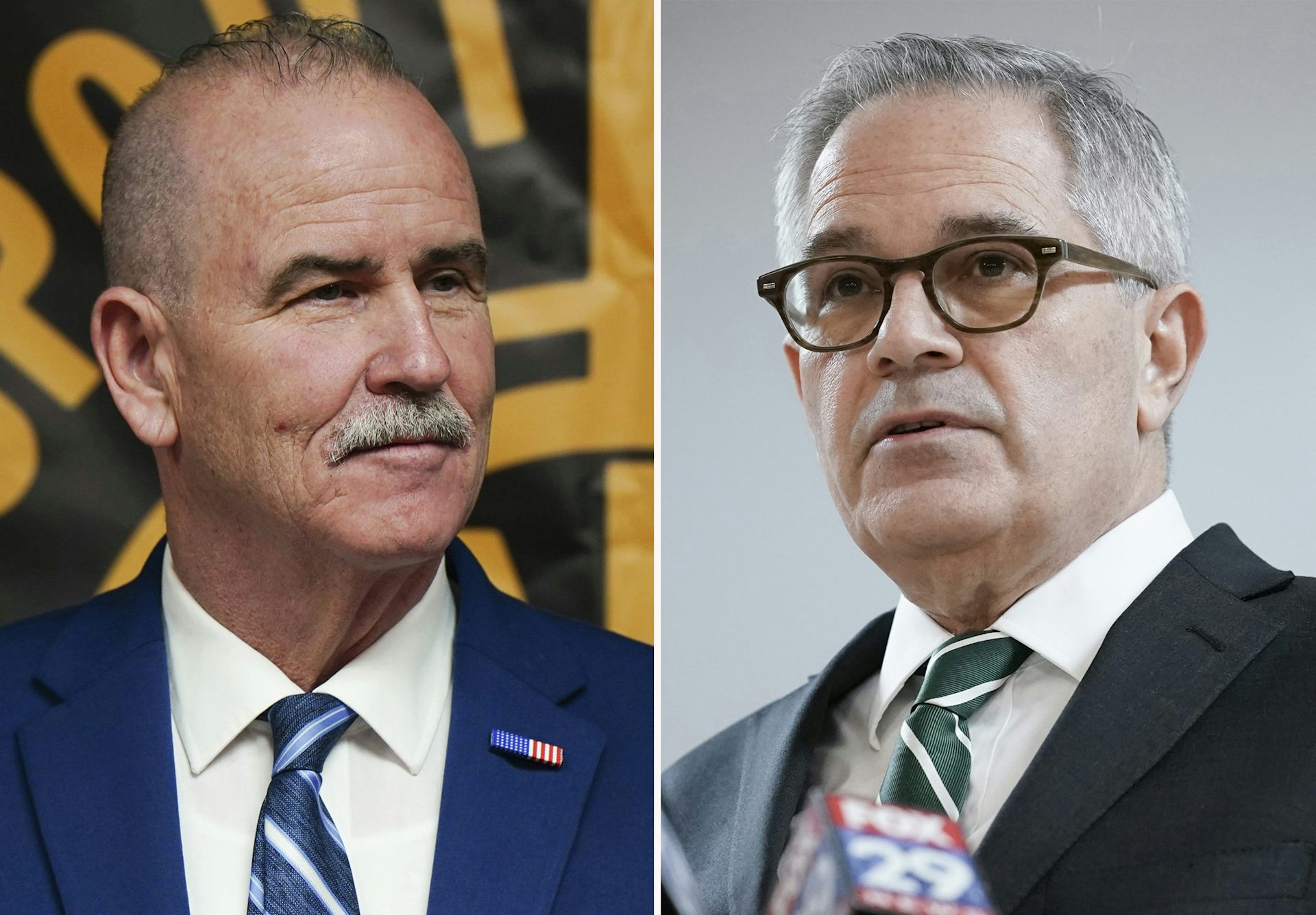Sen. Ron Wyden Seeks Answers On Rfk Jr.’s Purge Of Foia Staff

The Department of Health and Human Services’ mass dismissals of workers who release government records “raise grave transparency, accountability, and privacy concerns,” Oregon Sen. Ron Wyden said Thursday.
In a May 8 letter to HHS Secretary Robert F. Kennedy Jr. provided exclusively to KFF Health News, Wyden, the top Democrat on the powerful Senate Finance Committee, wrote that “it is hard to square your commitment to radical transparency” with HHS’ firing of workers who handled Freedom of Information Act requests.
“It is essential that FOIA offices have the resources to disclose appropriate information to the public in response to records requests,” he wrote, noting that disclosures under federal law have “served as the basis for groundbreaking public reporting, litigation, and legislation” to improve government programs.
“During times of rapid changes to government agencies, citizen oversight is a cornerstone of a functioning democracy and these agencies must have adequate resources to respond fully to requests,” Wyden wrote.
FOIA is a transparency law that guarantees public access to the inner workings of federal agencies by requiring officials to release government records. The 1966 law is a crucial tool to hold officials accountable and uncover harm, corruption, and political meddling in policymaking.
Wyden is the latest lawmaker to protest the Trump administration’s firings of public records staff and the potential consequences on disclosure of vital information affecting public health and safety. On April 24, Democratic Rep. Gerry Connolly sent a letter to the Centers for Disease Control and Prevention expressing concern about the firing of FOIA workers at that agency. The firings have also spurred at least one lawsuit and multiple critical op-eds.
“It’s still a bit of a mystery to me as to why this is happening,” said Adam Marshall, a senior staff attorney at the Reporters Committee for Freedom of the Press.
The chaos across HHS is “having a real detrimental effect on the public’s right to know what’s happening,” Marshall said.
Wyden asked Kennedy to answer more than two dozen questions by May 22. They include what plans, if any, HHS has to keep meeting its FOIA obligations, and which officials were involved in decisions to fire workers who process requests.
The letter specifically asks for information on the potential involvement of Elon Musk, the world’s richest person, whom President Donald Trump tapped to shrink the government. Wyden also wants information about the involvement of HHS acting general counsel Sean Keveney, HHS chief of staff Heather Flick Melanson, and top Kennedy aide Stefanie Spear. Lily Johnson, a Wyden spokesperson, said the senator received reports from whistleblowers that Melanson and Spear played a role in FOIA firings across various HHS agencies.
Wyden also asked whether Kennedy, or anyone acting at his direction, has been involved in conversations related to FOIA and topics including vaccines, autism, measles, psychiatric medications, and covid-19.
In a written statement, HHS spokesperson Andrew Nixon said the department “categorically rejects any characterization suggesting that this effort is a dismantling or weakening of FOIA responsibilities.”
“This reorganization is designed to reduce redundancies and improve response times. All FOIA obligations will continue to be fulfilled and this work continues,” Nixon said.
Wyden’s letter follows a dizzying series of events over the past month involving FOIA workers at federal health agencies, including the FDA, CDC, and National Institutes of Health.
In late March and early April, HHS decimated the workforce that processes FOIA requests across FDA centers that oversee vaccines, drugs, tobacco, medical devices, and food. Operations to release public records largely ground to a halt, according to current and former employees. Additionally, the CDC’s entire FOIA office was fired, and staffers were significantly cut at the NIH. KFF Health News agreed not to name the workers because they are not authorized to speak to the press and fear retaliation.
Current and former FDA employees said FOIA workers were fired despite being involved in furnishing government records under court-ordered deadlines in response to lawsuits. Two current or former FDA employees noted that the agency missed several deadlines to produce documents in April.
There were exceptions. The cuts at the FDA spared at least some workers furnishing records in response to court orders in FOIA lawsuits involving the agency’s vaccines division, which includes litigation about covid vaccines brought by Aaron Siri, an ally of Kennedy’s who represents anti-vaccine interests, KFF Health News reported. Siri was Kennedy’s lawyer during his 2024 presidential campaign and has represented prominent anti-vaccine activists.
This month, roughly four weeks after the firings, FDA FOIA workers were reinstated, three employees said. The CDC’s FOIA office status had not changed as of May 7, one employee said.
On April 22, Kennedy said officials were “restoring all the FOIA offices,” but the department has not outlined specific plans. In previous comments, Nixon of HHS said FOIA offices “will be streamlined into one place and the work will continue to increase radical transparency for the American people.”
FOIA requests are used to obtain a litany of records, including detailed CDC information about large outbreaks of food and waterborne illnesses, and reports generated by FDA inspections of facilities that make food, drugs, medical devices, and dental products.
Although HHS maintains a FOIA office, historically the FDA, CDC, NIH, and Centers for Medicare & Medicaid Services had dedicated public records teams to handle government records distinct to each agency. Transparency advocates say filling requests is more complicated than many realize, often requiring an in-depth understanding of complex agencies. That’s why it’s important to house FOIA staff within each agency rather than consolidate them, they said.
Wyden wrote in his letter that federal health agencies handle “exceptionally sensitive information,” such as proprietary details about drugs and medical devices, and personally identifiable information about minors. “In either case, non-experts responding to FOIA requests jeopardizes this information,” he wrote.
“I am extremely concerned about the detrimental impact that FOIA office closures will have on HHS’s ability to comply with this powerful government accountability tool,” Wyden wrote.
We’d like to speak with current and former personnel from the Department of Health and Human Services or its component agencies who believe the public should understand the impact of what’s happening within the federal health bureaucracy. Please message KFF Health News on Signal at (415) 519-8778 or get in touch here.
KFF Health News is a national newsroom that produces in-depth journalism about health issues and is one of the core operating programs at KFF—an independent source of health policy research, polling, and journalism. Learn more about KFF.
USE OUR CONTENT
This story can be republished for free (details).


